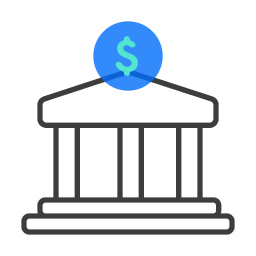Low credit scores can make it more difficult to get small business loans, but fortunately there are financing options that may still be available. Here we discuss how to find the best business loans for bad credit.
Can You Get a Business Loan with Bad Credit?
Many small business lenders check the owner’s personal credit, business credit or both. Not all lenders have high minimum credit score requirements, however. And there are a few financing options that don’t check credit at all.
There’s a caveat to keep in mind here, however: if you have bad credit, many (though not all) financing options will be more expensive. Good credit can help your business qualify for better loans at a lower cost.
If you need financing, though, you’ll want to know what bad credit business loans are available.
What is Considered a Bad Credit Score?
What is considered bad credit to one lender might be OK to another. Following are some typical score ranges, but keep in mind that each lender decides for itself what credit scores will be considered acceptable.
670-719 (Good): Scores in this range will often be considered good credit. A borrower with this type of score can expect to have a good choice of lending options though not as many as if scores were higher.
620-669 (Fair): These scores are higher risk, especially those on the low end of this range. It may be possible to get a small business loan, but financing will not likely come with the lowest interest rates. Traditional bank loans are often not available to borrowers in this score range.
500-619 (Poor): There is some financing available for borrowers with those with poor credit scores, but they will be considered high risk. Funding options are limited and annual percentage rates will likely be high.
Below 500 (Very Poor): With this credit score it is unlikely a business owner will qualify for a business loan that involves a credit check.
What About Bankruptcy?
It’s worth noting that if you have a bankruptcy on your credit reports, it’s important to check the lender’s policy with regard to bankruptcies. Many will require the bankruptcy be completed (discharged or dismissed) and some may require it to be at least 1-2 years prior.
Types of Financing Available for Bad Credit
There are several types of loans and financing that either don’t check personal credit, or that don’t have high minimum credit score requirements. If your personal credit scores are low, consider these loan options:
What About Bankruptcy?
Microlenders are often non-profit organizations that help underserved entrepreneurs get access to capital. Loan amounts are usually fairly small— ranging from a few hundred dollars to several thousand dollars. The U.S. Small Business Administration (SBS) Microloan Program caps out at $50,000.
There are many microlenders across the US, and each has its own standards. Some may offer financing to business owners with personal FICO scores as low as 575—650+, though an acceptable explanation for lower credit scores may be required. Learn how to find microlenders in your local area here.
Line of Credit
A line of credit allows the borrower to access financing up to a specific credit limit. Pay it back and those funds become available again. A line of credit is one of the most popular types of short-term small business financing and is frequently used for working capital and cash flow purposes.
Lines of credit through banks or credit unions will typically have fairly stringent eligibility requirements, but lines of credit through online lenders may be available to borrowers with lower credit scores, provided the business meets other qualifying criteria.
Business Cash Advances
A business cash advance or merchant cash advance is a financing product that analyzes past revenues (sales) to determine how much money to advance the business. Payments are then taken out of future sales, usually on a daily or weekly basis.
Because this type of financing is based primarily on sales volume, credit scores are not typically an important approval factor. Personal credit may be checked, but minimum credit score requirements are usually quite lenient.
Crowdfunding
Crowdfunding platforms allow businesses to get funding from individuals interested in supporting the business. Rewards-based crowdfunding platforms like Kickstarter allow businesses to offer tangible rewards (usually in the form of the product) to backers. Equity-based crowdfunding permits businesses to offer equity (an investment) in exchange for funding, and debt-based crowdfunding provides loans to businesses.
A credit check is rarely required, and neither are minimum credit scores. (If credit is checked, it will usually be for debt-based crowdfunding and in some cases will be used to rule out an open bankruptcy or other serious credit problems.) In addition, crowdfunding can be an excellent option for startups.
Term Loans
Term loans offer a loan in a lump sum (rather than a line of credit) and are often used for specific projects. Many lenders require good credit to qualify for a term loan but some online lenders offer short-term loans that may be available to businesses with fair credit scores, provided revenues and other requirements (such as time in business) are solid.
Invoice Factoring
If your business invoices other businesses, invoice factoring or invoice financing can help you get funds more quickly. Your credit is not as important as the credit of your client; that’s who the factoring company will collect from.
Equipment Leasing
Don’t overlook equipment leasing as an option to get the equipment you need to run your business. Some leases require good credit, but others may accept borrowers with fair or even poor credit. Equipment manufacturers may offer leases, or you may work with third-party equipment leasing firms.
Vendor Financing
Vendors or suppliers may allow customers to purchase goods or services without paying up front. The business will then be able to pay for the items later, hopefully out of future cash flow. Terms vary, but net-30 terms are common and given the business thirty days from the invoice date to make the payment. Find easy net-30 vendors here.
Business Credit Cards
A business credit card offers a line of credit accessed with the card. Most small business card issuers check the applicant’s personal credit scores, and good or excellent credit is typically required. Those with fair or bad credit may need to get a secured business credit card, which requires a security deposit.
Best Business Loans for Bad Credit
Here are loan options that may be available to business owners with fair or even poor credit. Keep in mind lenders have other requirements, in addition to credit. You can use a loan marketplace such as Nav to get matched to financing based on your qualifications.



Looking and needing help For a new small Business loan I am the proud Owner of Independent Health Care Agency and things are not Looking good for me right now been applying for grants, my credit is in the 500 range [Poor} Looking for a lender that at least will give me a chance I’m a travel nurse as well and make a decent pay just looking for a lender that will give me a chance to prove I’m worthy of a poor credit Business Loan.
Jennifer – I would really encourage you to connect with SCORE and/or your local SBDC. Both offer free help for entrepreneurs and they may be able to connect you to local resources. You’re likely going to have trouble getting startup financing with a low credit score but they can help you work on a business plan while you work on your credit.
Me and my daughter wanting to start a small cleaning business
morning, i am a new LLC owner and I am looking for business loans to help support vending supplies needed for clinical rotations.. I am a licensed instructor and i am very passionate about my field of expertise.. i have invested my own finances and now i am at a point where more equipment is needed to compete in this growing industry of medicine…please reach out to me with information u may have to steer me in the right direction so that I may continue my teaching dreams…..
We have a restaurant but the owner sold the property to a construction company who is going to build apartments on the property we did very good here now we found a place to move but they are only selling the restaurant property but we don’t have much capital we spent it here remodeling this place thinking we were going to buy here is there any lines to buy a business? Please advise thank you
Hello there.
I am in need of some help putting my plan together.
I need to buy at least 5 to 10 acres of land to start the business. I would also need to improve the land (stabilization, fencing and lighting ) I’m estimating the cost to be about $150k for improvements and $700k. To $850k for land (metropolitan area) So the total amount would be around $850k to 1 million.
I have a very good credit rating of 740 to750 an annual income of $180k and about $120k in savings to start But with land prices that would probably only get me as far as the down payment for the land and no money for improvements to get the business up and running.
I don’t know if this is even possible to do or what do I need to do to make it happen. Thank you in advance for your help.